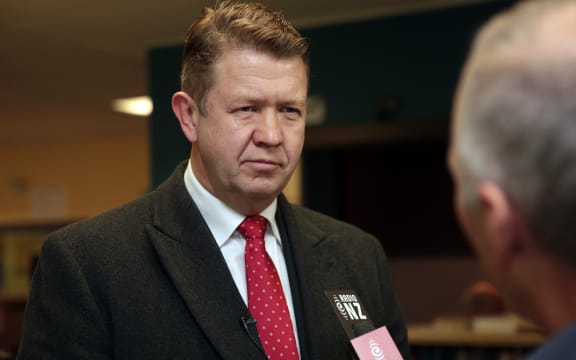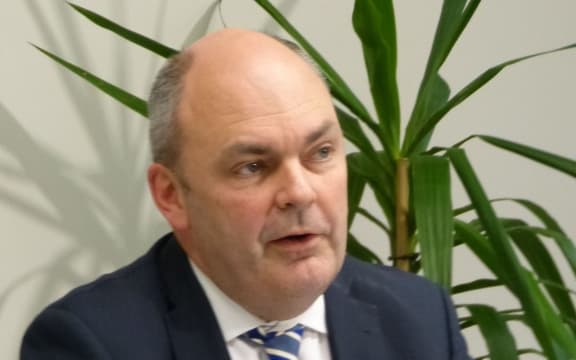After a week of diversions, the Labour Party finally managed to get the focus back on its policy platform when it released its alternative Budget.
Labour was also helped by fresh reports revealing that the original allegations made by millionaire Donghua Liu that he had donated more than $100,000 to the party were wrong.

Labour leader David Cunliffe. Photo: RNZ / Diego Opatowski
Labour leader David Cunliffe is demanding an apology but, for the moment, might just have to hold his breath.
In the meantime, though, news media interest - which had been obsessively focussed on Liu's unsubstantiated allegations - shifted to Labour's policies.
So, too, did the focus of the National-led Government. Prime Minister John Key has spent the week continuing to backtrack from his claims about Labour and appeared to welcome instead the opportunity to attack Labour's alternative Budget.
Mr Key's response to the document, which outlines how much Labour expects to raise in tax and how much it intends spending, was that the figures did not add up.
He did not detail where the figures were wrong, just as he never detailed where Labour got what he said was hundreds of thousands of dollars from Liu.

Steven Joyce. Photo: RNZ
Associate Finance Minister Steven Joyce did, however, challenge the specifics of Labour's policies on Morning Report in what turned into a debate with Labour's finance spokesperson, David Parker.
Under Labour's plan, it intends to raise the top tax rate for income of more than $150,000 a year to 36 percent. It would increase the trustee income tax rate to 36 percent to cut down on opportunities for the wealthy to avoid the higher rate.
It also confirmed it would introduce a comprehensive capital gains tax.
On the other side of the ledger, Labour would make KiwiSaver compulsory and provide tax credits to all those in the scheme. It would also re-introduce research and development tax credits scrapped by the National-led Government.
Overall, it believes the Government's tax take will rise, particularly once the capital gains tax comes fully into effect.
Tight rein on spending
Labour is also promising to keep a tight rein on spending, although it would increase funding for health and education.
On that basis, Mr Parker says a Labour-led Government will run surpluses every year for the next six years and pay back public debt.
Under the figures in its document it is forecasting it will reduce net public debt to 3 percent of gross domestic product - the rough measure of the size of the economy - by the financial year 2020-2021.
Mr Joyce says he does not believe Labour will be disciplined enough about spending restraint to to that.
But Mr Parker points out, as he has repeatedly, that the last Labour-led Government did reduce net public debt to near zero and ran surpluses every year. He argues that it is National which has driven up debt.
Mr Parker concedes much of the increase in debt was necessary to protect New Zealand against the worst effects of the global financial crisis and to respond to the Canterbury earthquakes. He points out, though, that National's tax cuts added $4 billion dollars to that debt.
Mr Joyce argues Labour's path to lower debt is helped by the fact it includes returns from the New Zealand Superannuation Fund in its calculations - something Mr Parker makes no apology for.
Labour will restart contributions to the fund next year, much earlier than that planned by National. It says initially net debt will go up but as the returns on the additional contributions to the Fund compound and outstrip the borrowing costs, net debt will fall.
Mr Joyce criticises that approach and says Labour's fiscal plan will impede economic growth.
Sure, there is politics in the argument, but in this case the two men are debating the substance of economic and fiscal policies which will, for better or worse, impact on people's lives.
After a week of nonsense voters finally got a debate about ideas and, in its purest form, politics should be about ideas.
The challenge is, with the election just 12 weeks away, will the politicians be able to stick to the debate about ideas or be diverted by trivia?
More importantly, perhaps, will the media?

